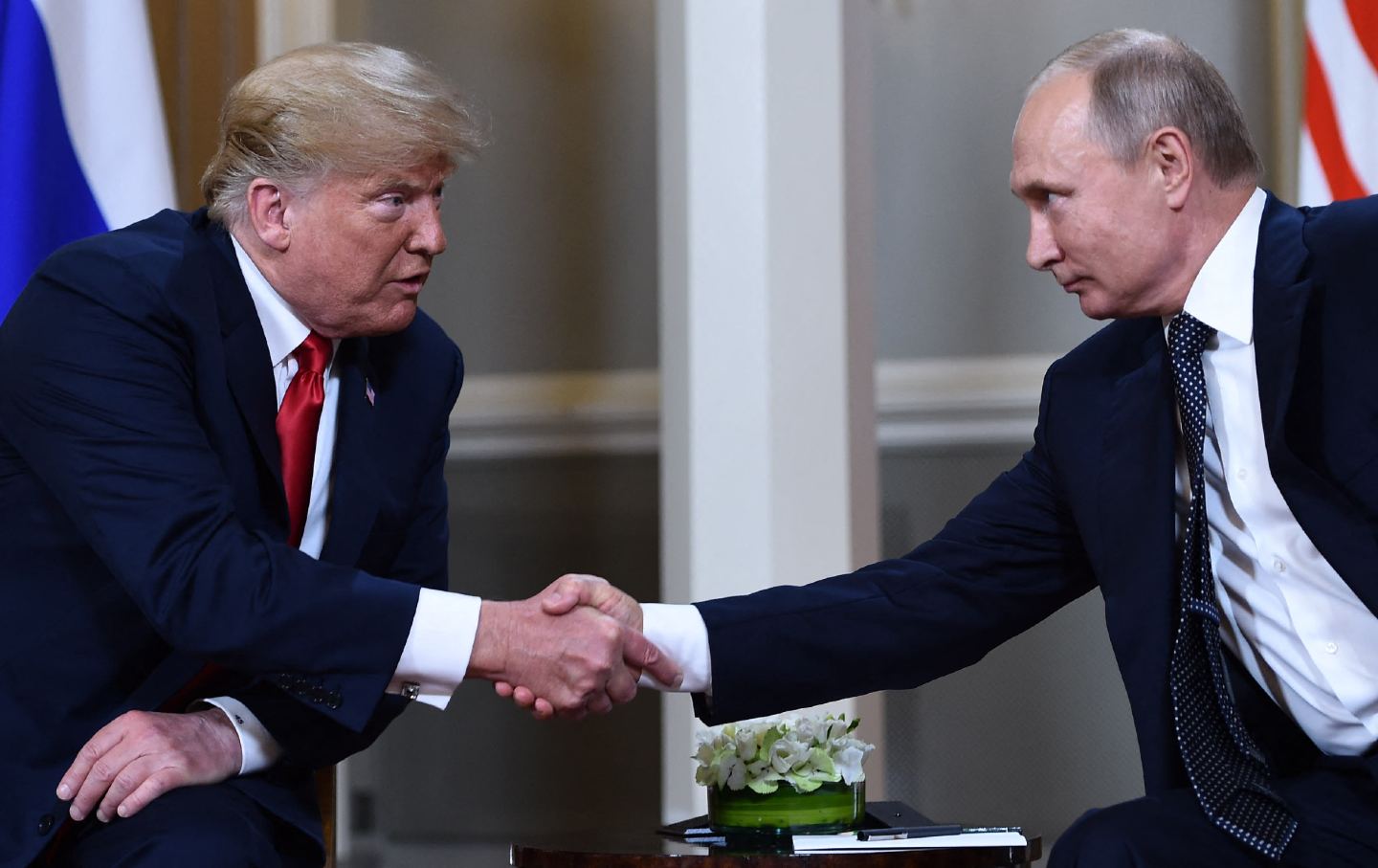How Former Ambassador Jack Matlock Corrects the Record on American Foreign Policy
Matlock, now 95 years old, offers a classic example of why our leaders would benefit greatly from more wisdom and less intelligence.
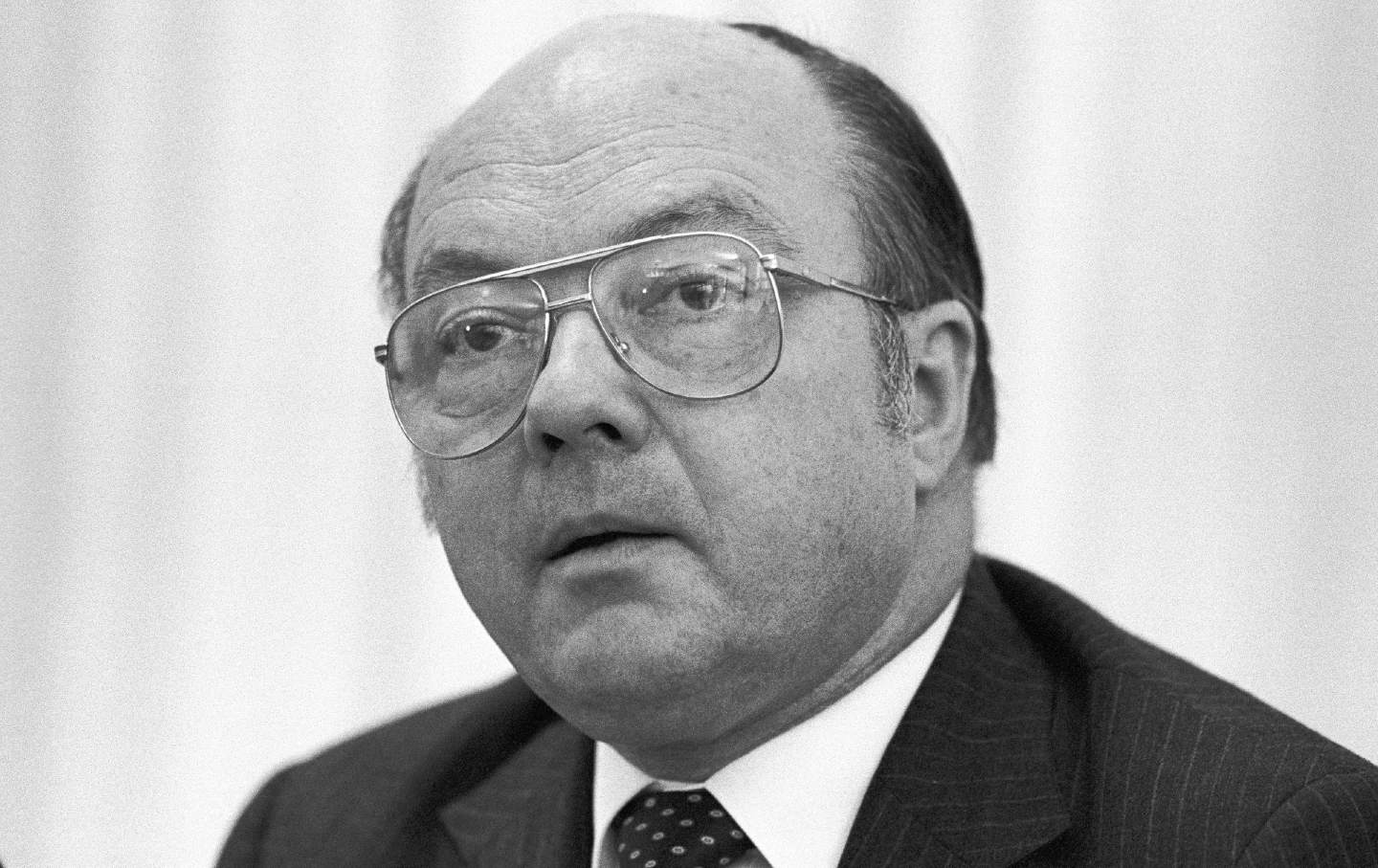
In the decades since the end of the Cold War, this country has suffered through a series of foreign policy debacles. First and foremost, there was the invasion of Iraq, surely the worst folly since Vietnam. And then there were the trillions of dollars, lives and decades wasted in the war in Afghanistan and an unending and self-perpetuating Global War on Terror, which has generated more terrorists than it eliminated. The utter failure to deal with catastrophic climate change. Now the horror in Gaza and the devastation of Ukraine at the second anniversary of what has turned into a brutal war of attrition. The list could go on.
The tragedy of American foreign policy is that the leaders and national security managers who led us into these debacles or helped sell them to the public remain in charge of American foreign policy and are guardians of the conventional wisdom. Instead of listening to those who got it right, we seem condemned to follow those who got it wrong over and over again.
That is why the voice of 95-year-old Jack Matlock is so important—and deserves far more attention. Ambassador Matlock, a career foreign service officer, served as ambassador to the USSR under Reagan and George H.W. Bush, working with them to negotiate the end of the Cold War. Today, he cuts through the propaganda and the hype and offers a compelling map of the roads not taken.
The end of the Cold War, Matlock notes, came from diplomatic negotiations—not from the defeat and collapse of the Soviet Union. Indeed, the subsequent breakup of the Soviet Union was seen by the Bush administration as a setback for US policy. Reagan and Bush negotiated the end of the Soviet empire, and the unification of Germany. They reassured Soviet leader Gorbachev that if he agreed not to intervene in Eastern Europe, the United States (read NATO) would not take advantage.
While the US worked to gain independence for the Baltic Republics, the Bush administration thought Georgia and Ukraine would fare better in a voluntary association with the Soviet Union. President Bush proclaimed a goal of a “Europe whole and free.” Gorbachev spoke of “our common European home,” and welcomed representatives of Eastern European governments that had thrown out their communist rulers.
Matlock traveled to Kiev with Bush when the president appealed to the Ukrainians to join into a voluntary federation with the Soviet Union and warned them against “suicidal nationalism.” Then the Soviet Union disintegrated.
When the US subsequently moved, aggressively under Clinton, to extend NATO at a time when Russia was weak and near anarchy, Matlock warned against it. And as Matlock notes, so too did almost all the senior people involved in negotiating the end of the Cold War, plus heavyweights from (the dove) George Kennan to (the hard-liner) Paul Nitze.
Testifying before the Senate Foreign Relations Committee in 1997, Matlock warned that taking in new members to NATO “may well go down in history as the most profound strategic blunder.… [I]t could well encourage a chain of events that could produce the most serious security threat to this nation since the Soviet Union collapsed.”
Instead, the US added 15 counties (including Finland this year) to NATO, spanning from the Baltics in the North to Romania in the South. Then George W. Bush unilaterally terminated the Anti-Ballistic Missile Treaty and began building bases and deploying ABM missiles—which could easily be converted to offensive weapons—to Russia’s borders.
Putin objected but was ignored. He made it repeatedly clear that adding Georgia and Ukraine to NATO would be unacceptable. Again, he was ignored. The US proceeded to arm and train the Ukrainian military; NATO announced that Ukraine would become part of NATO eventually; and, as we’ve just learned, the CIA integrated itself into Ukrainian intelligence and military preparations. The Minsk Agreements that called for a federated Ukraine not part of NATO—signed off on by the EU, the US, Ukraine and Russia—were never pursued, used, as Angela Merkel admitted, as a cover to give Ukraine’s military time to build up.
The Russian invasion and courageous Ukrainian resistance triggered a strengthening of NATO and massive military aid, with the Biden administration claiming that democracies everywhere will be imperiled if Russia wins. Now the war has settled into a grinding war of attrition, with Ukraine savaged, millions of its people displaced, its economy ruined. The US administration, RAND corporation analysts tell us, “is more tolerant of Ukrainian horizontal escalation against high-value Russian targets in Crimea and Russia proper.” Or, in the words of Biden’s Undersecretary of State Victoria Nuland (previously Dick Cheney’s point person on Iraq), there will be “nasty surprises” for the Russians.
No wonder former Ambassador Matlock fears that we are closer to a nuclear exchange now than we were in the Cuban missile crisis.
Looking back at the years of folly since the end of the Cold War, Matlock recalled a 1989 Christmas Eve meeting with the deputy foreign minister of the Soviet Union. He told Matlock that “we have given the Brezhnev Doctrine to you with our compliments. Consider it a Christmas gift.”
The Brezhnev Doctrine, Matlock explains, was grounded on the belief that socialism was the inevitable stage of human development. In the wake of the Soviet invasion to put down revolts in Hungary in 1956 and Czechoslovakia in 1968, the Soviet Union essentially asserted the right and the duty to defend socialist countries from threats whether internal or external.
At the end of the Cold War, Matlock was present when President Bush and Gorbachev declared the Cold War over. Gorbachev pledged that the Soviet Union would not intervene in Eastern Europe to prevent change. When a revolt erupted against the communist government in Romania in early December, Gorbachev kept his word.
Popular
“swipe left below to view more authors”Swipe →Ironically, that same December, the US invaded Panama to remove its President Manuel Noriega. That occasioned the Russian quip to Matlock on Christmas Eve.
What neither foresaw was that the United States would go on to declare itself the indispensable nation. Francis Fukuyama, a State Department official, was hailed for declaring “Western liberal democracy”—the American version of democratic capitalism—the “final form of human government” at the “end of history.” Successive administrations—from Clinton to Biden—asserted not only the right and the duty to defend democracy from threats internal or external but also the right to use its prowess to bring the blessings of democracy to those deprived of it. The US has embraced its version of the Brezhnev Doctrine that we once condemned, and we are paying a terrible price for it.
At 95, Jack Matlock offers a much-needed corrective to the constricted consensus that passes for our foreign policy debate. He was present at the great turning point—and is aware of the roads not taken. He offers a classic example of why our leaders would benefit greatly from more wisdom and less intelligence.
We cannot back down
We now confront a second Trump presidency.
There’s not a moment to lose. We must harness our fears, our grief, and yes, our anger, to resist the dangerous policies Donald Trump will unleash on our country. We rededicate ourselves to our role as journalists and writers of principle and conscience.
Today, we also steel ourselves for the fight ahead. It will demand a fearless spirit, an informed mind, wise analysis, and humane resistance. We face the enactment of Project 2025, a far-right supreme court, political authoritarianism, increasing inequality and record homelessness, a looming climate crisis, and conflicts abroad. The Nation will expose and propose, nurture investigative reporting, and stand together as a community to keep hope and possibility alive. The Nation’s work will continue—as it has in good and not-so-good times—to develop alternative ideas and visions, to deepen our mission of truth-telling and deep reporting, and to further solidarity in a nation divided.
Armed with a remarkable 160 years of bold, independent journalism, our mandate today remains the same as when abolitionists first founded The Nation—to uphold the principles of democracy and freedom, serve as a beacon through the darkest days of resistance, and to envision and struggle for a brighter future.
The day is dark, the forces arrayed are tenacious, but as the late Nation editorial board member Toni Morrison wrote “No! This is precisely the time when artists go to work. There is no time for despair, no place for self-pity, no need for silence, no room for fear. We speak, we write, we do language. That is how civilizations heal.”
I urge you to stand with The Nation and donate today.
Onwards,
Katrina vanden Heuvel
Editorial Director and Publisher, The Nation
More from The Nation

Warning From the Past Warning From the Past
In a new film, journalists confront a dictator.

The Case Against Joe Biden for Complicity in Genocide The Case Against Joe Biden for Complicity in Genocide
The ICC has applied for an arrest warrant for Benjamin Netanyahu. But Israel’s assault on Gaza has been made possible by US support.
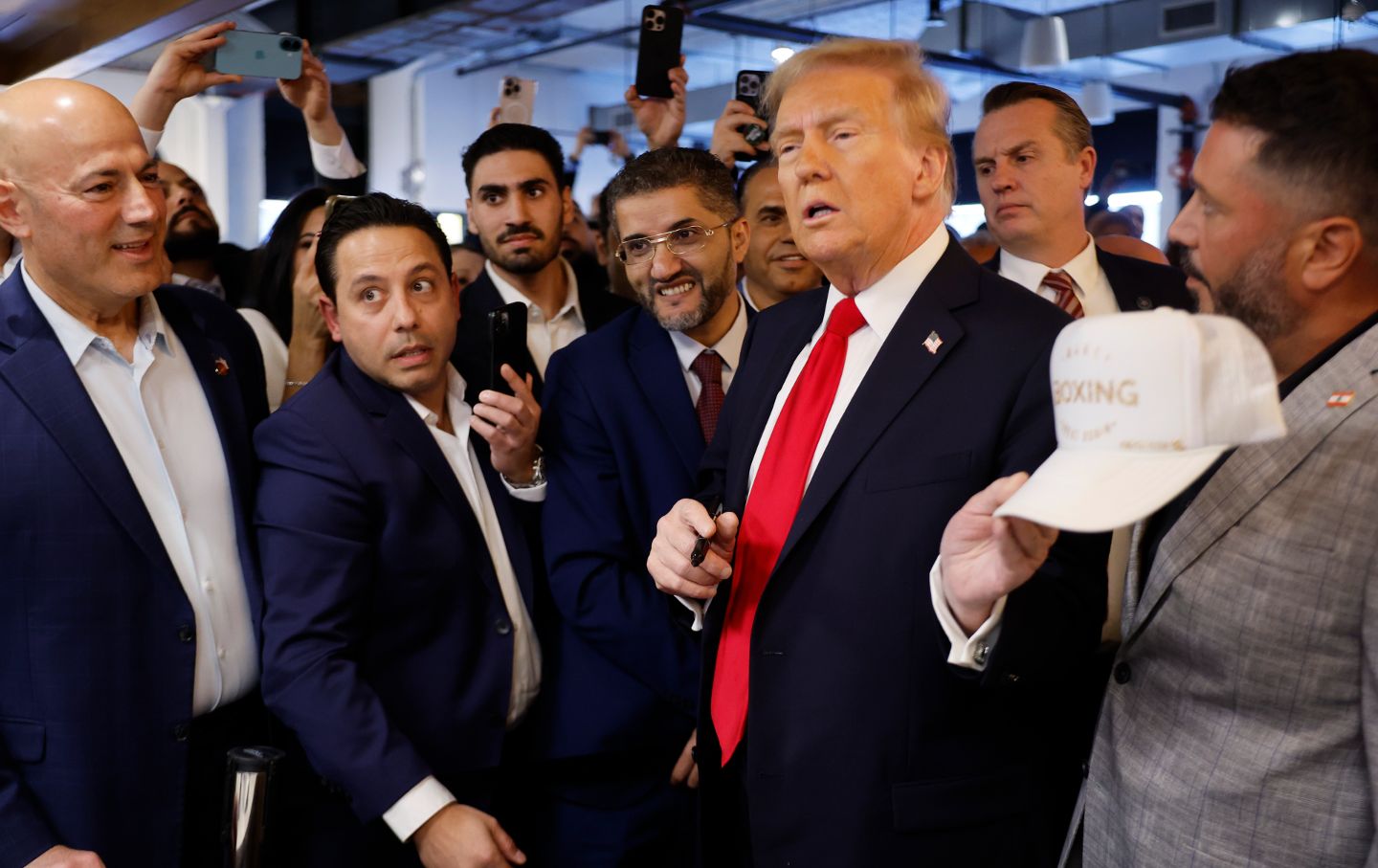
Gazans Heard Trump's Promises. Now They Want Him to Keep Them. Gazans Heard Trump's Promises. Now They Want Him to Keep Them.
Trump made a direct pitch to end the war on Gaza. The people still living there were listening.
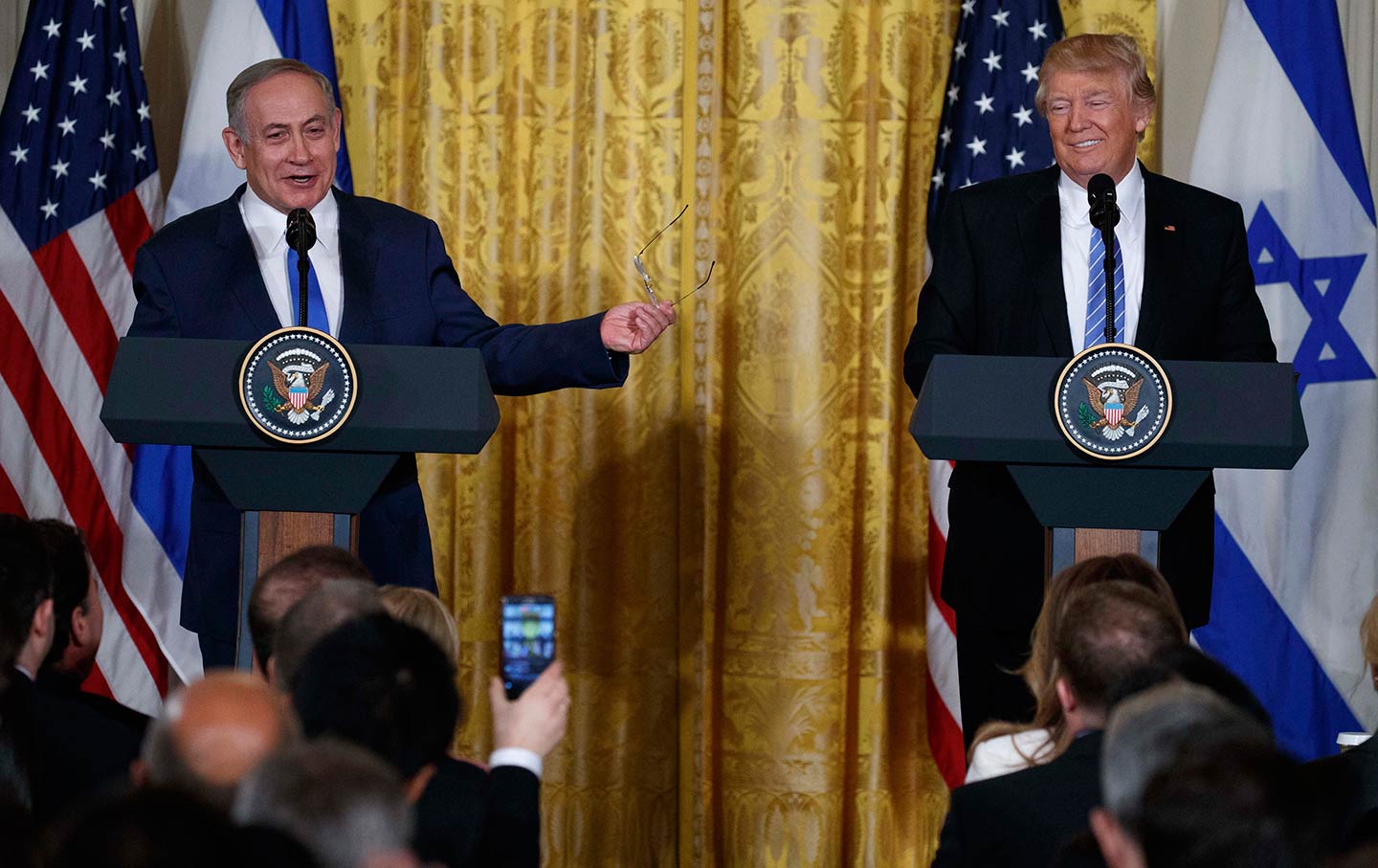
The Fallout of Biden’s Middle East Policy Is Now Trump’s Responsibility The Fallout of Biden’s Middle East Policy Is Now Trump’s Responsibility
In Trump’s hands, the country's diplomatic strategy in the Middle East can only get worse.
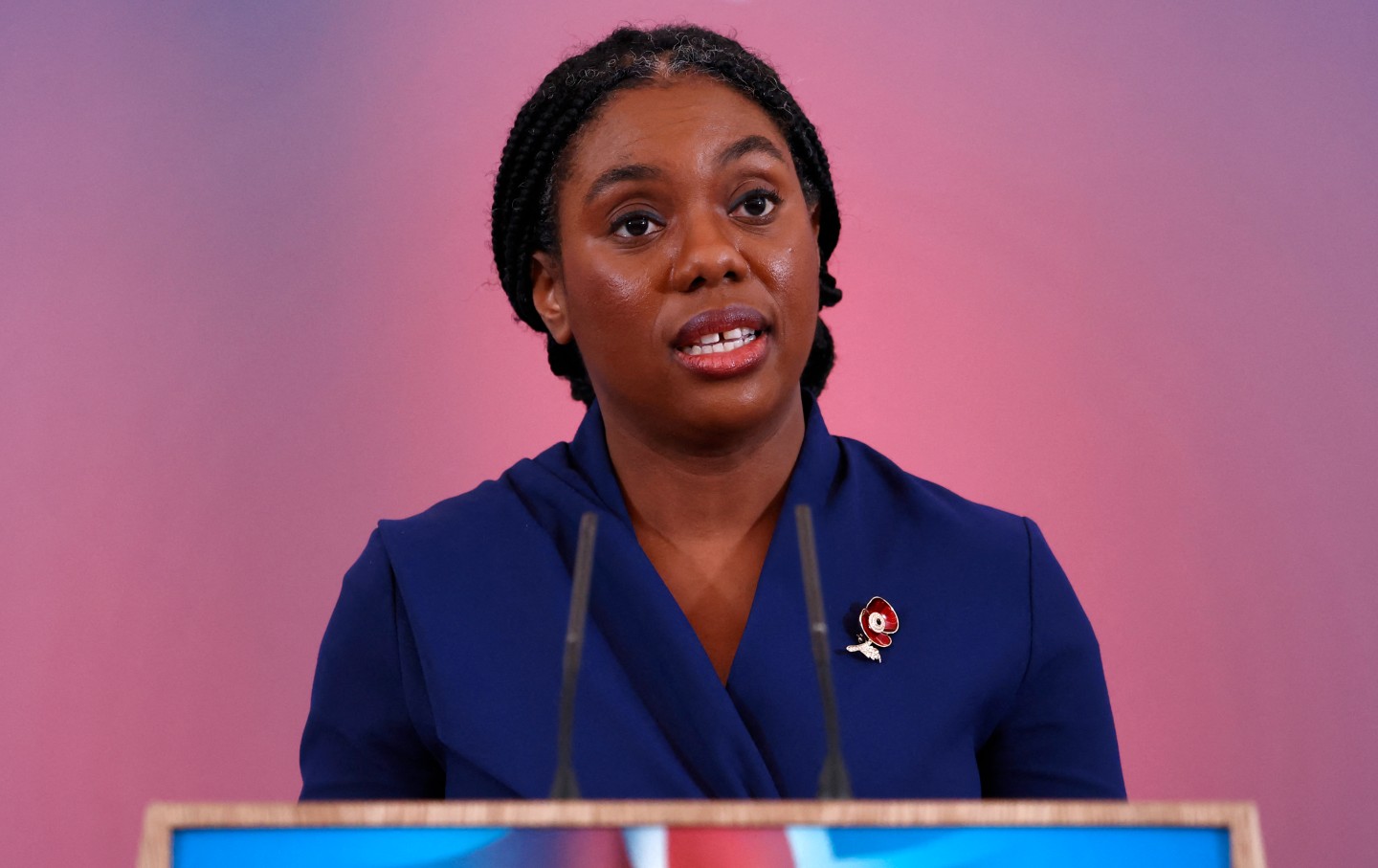
The New Face of British Conservatism is Black—and Female The New Face of British Conservatism is Black—and Female
The London-born daughter of Nigerian parents presides over the ruins of 14 years of Tory rule. Can her brand of nativism-lite bring the party out of the wilderness?

